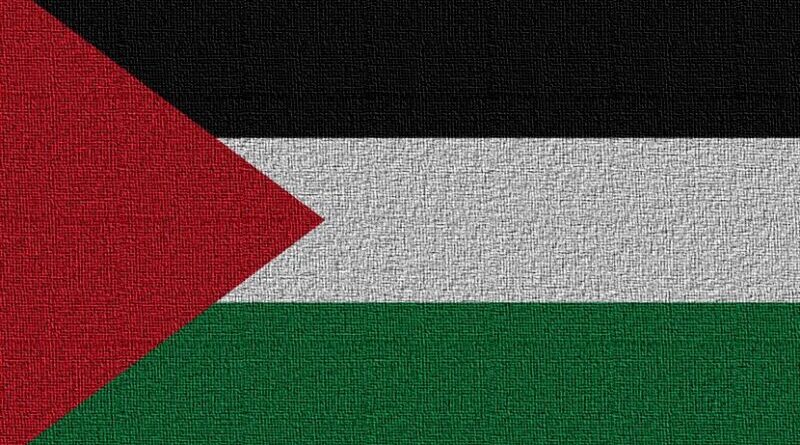Why I Never Use The Word ‘Palestine’ – OpEd
By Daniel Rosehill*
Meeting visitors to Israel, politics is a specter that always hangs in the air.
Most will be eager to tell you of their time floating in the Dead Sea, exploring the vaunted beaches of Tel Aviv.
Oh, and their trip to Palestine.
Here’s the truth. I’ve never questioned anybody’s use of the term before—whether in person or in a public forum.
Doing so often opens a can of worms—the nuances of geographical nomenclature hold great import in this part of the world.
But if I were asked why I subtly returned with “where in the West Bank did you see?”, here’s what I would try to get across in speech:
Calling the West Bank “Palestine” Actually Undermines Palestinians’ Struggle for Statehood
Your average far-right Israel-supporter would probably take a glance at the above subheading and close the tab.
Or jump to the comments section to intone that “Palestinians are a made-up people and no state called ‘Palestine’ has ever existed.”
That’s an argument for another day. And I’m among the minority who thinks that whether that’s true or not doesn’t really matter.
You can call the Arabs that remained in Israel in 1948—and their descendants— “Palestinians,” “Arab Israelis,” or just “Arabs.” (The last has been carefully adopted into the style guides of the Israeli far-right media. Headlines along the lines of “Rocket lands near West Bank Arabs” are representative of the trend).
These Palestinians/Arabs may live under Israeli rule in Jaffa (so-called “-48 Arabs”) or under that of the Palestinian Authority in Ramallah or Jenin (so-called “-67 Arabs”). Those living within the Green Line may eschew the “Israeli-Arab” identity, embrace it wholeheartedly, or simply self-identify, in Arabic, as “Arabs of -48.”
But I don’t believe that even the most limited formulation of this people’s name, or where they originated, can abrogate Israel of its moral and legal responsibility to help realize a just and lasting solution for those with whom it shares its sovereign territory.
And speaking of sovereign territory, calling the putative Palestinian state “Palestine”—as if it already existed—is exactly what I take issue with.
Because in my view, doing so amounts to unintentionally endorsing an enormous fallacy—to the detriment of the Palestinians whom those visiting “Palestine” usually profess to support.
The Reality of Life in the West Bank
When people talk of visiting “Palestine,” or supporting “Palestine’s” failing attempt to join the UN as a full member state, they are talking—in effect—of the Gaza Strip plus Areas A and B of the West Bank.
Definitions of what constitutes sovereignty are not cut and dried.
“Palestine” does fulfill a limited number of manifestations of statehood. But what modern precedent is there for a state that lacks a contiguous territory, has no control over its own borders, and in fact doesn’t even have any?
The reality, which even the most ardent right-wing supporters cannot contest, is that West Bank Palestinians live within limited pockets of autonomous rule circumscribed by an area under (for them) Israeli military law.
Visiting the West Bank, these facts on the ground become extremely obvious. One cannot travel between any two cities in “Palestine” without either encountering a checkpoint or dealing with the possibility that a “flying” one will be set up.
“Palestine” has no airport. Its 40 km coastline along the Gaza Strip is subject to a naval blockade. Visiting Gaza, for the vast majority of the world, is practically impossible. And there is no way to enter or exit the West Bank without passing an Israeli land crossing or checkpoint. Even in Area A, where the Palestinian Authority (PA) is supposed to enjoy unfettered control over security and civil affairs, IDF intrusions and physical infrastructure are a fact of daily life.
And there’s another reality.
“Palestine,” or rather the Palestinian Authority, has launched a carefully engineered PR strategy designed to force “Palestine” into the lexicon of the allies it has recruited to its cause—both rank and file visitors and friends on the diplomatic stage.
The trappings of sovereignty it has managed to assemble range from the technical details, such as the .ps Top Level Domain (TLD), which has been in existence for almost 20 years, to the diplomatic, such as the network of 75 missions that have been granted the designation of “embassy” by the governments that host them.
But to quote UN Special Coordinator for the Middle East Process Nickolay Mladenov in his address to the UN Security Council last month, the possibility of establishing “a viable, contiguous Palestinian state has been systematically eroded by facts on the ground.”
I won’t share my views about who holds responsibility for the way things are.
But until the reality of life in the West Bank and Gaza changes, those who proudly talk of their trips to whatever self-ruled enclave of that territory they call “Palestine” are in reality doing nothing more than being used as unintentional pawns in a deluded public relations strategy of international import.
The opinions, beliefs, and viewpoints expressed by the authors are theirs alone and don’t reflect the official position of Geopoliticalmonitor.com or any other institution.

